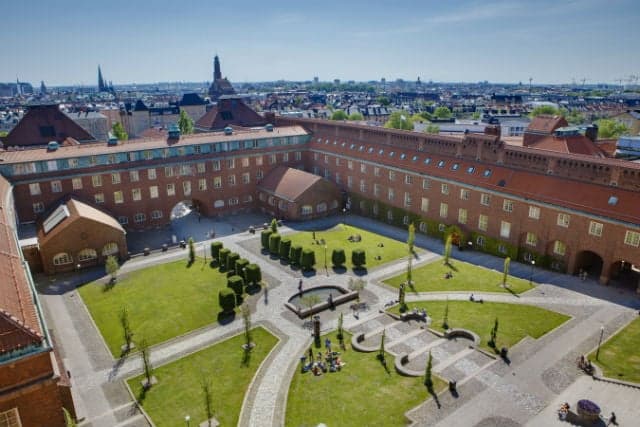Half of foreigners with work permit issues tell survey they studied in Sweden

More than half of those who answered a survey on struggles with Swedish work permits had studied at a Swedish University.
Of those surveyed for Diversify Foundation's Kompetensutvisning Baseline in collaboration with the Work Permit Holders' Association, 52 percent had studied in Sweden, while 51 percent held a master's degree, 33 percent a bachelor's degree, and three percent a doctorate.
"Make it easier for those who have studied in Sweden, paid for by the taxpayer, to stay here and develop in their careers," one of those affected told the foundation.
"It should be made easier for those who have education and experience in professions where there is a shortage to remain and work in Sweden."
ESSENTIAL READING:
-
What to do if your work permit renewal is rejected – and how to appeal it
-
Members' Q&A: Why is Sweden deporting skilled foreign workers?
-
How many people got a work permit in Sweden last year?
A total of 46 percent told the survey they originally came to Sweden to study, and 36 percent to work.
The respondents had studied at some of Sweden's most elite technical universities: 15 percent at the KTH Royal Institute of Technology in Stockholm, 11 percent at Stockholm University, 8 percent at Linköping University and 7 percent at Chalmers Institute of Technology.
Under the agreement struck with the Centre and Liberal Parties in January, Sweden's Social Democrat-Green coalition government has committed to stop so many highly-educated and skilled foreign workers having their work permit renewals rejected, often due to errors out of their control.
A third of those who responded to the survey worked in the IT industry, and 46 percent came from Southeast Asia, 16 percent from Pakistan, 16 percent Bangladesh and 14 percent from India.
The threat of deportation had a negative effect both on respondents' themselves and on their feelings towards Sweden, with 81 percent saying their health or their family's health had been affected.
YOUR STORIES:
-
'Don't be afraid of foreign workers. We are a key part of Sweden's future'
-
Award-winning Australian coffee entrepreneur told to leave Sweden
-
New dad faces deportation after 15 years because of holiday pay error
Those who responded to the survey had been waiting 15 months on average for a decision from Sweden's Migration Agency, with some waiting as long as 35 months.
Nearly 70 percent of respondents said they would not recommend other foreign workers to come to Sweden.
According to the foundation, 1,495 people took part in the survey, with 571 of those responses defined as qualified and vetted for statistical analysis.
How good is Sweden for international talent? Share your story with The Local.
Comments
See Also
Of those surveyed for Diversify Foundation's Kompetensutvisning Baseline in collaboration with the Work Permit Holders' Association, 52 percent had studied in Sweden, while 51 percent held a master's degree, 33 percent a bachelor's degree, and three percent a doctorate.
"Make it easier for those who have studied in Sweden, paid for by the taxpayer, to stay here and develop in their careers," one of those affected told the foundation.
"It should be made easier for those who have education and experience in professions where there is a shortage to remain and work in Sweden."
ESSENTIAL READING:
- What to do if your work permit renewal is rejected – and how to appeal it
- Members' Q&A: Why is Sweden deporting skilled foreign workers?
- How many people got a work permit in Sweden last year?
A total of 46 percent told the survey they originally came to Sweden to study, and 36 percent to work.
The respondents had studied at some of Sweden's most elite technical universities: 15 percent at the KTH Royal Institute of Technology in Stockholm, 11 percent at Stockholm University, 8 percent at Linköping University and 7 percent at Chalmers Institute of Technology.
Under the agreement struck with the Centre and Liberal Parties in January, Sweden's Social Democrat-Green coalition government has committed to stop so many highly-educated and skilled foreign workers having their work permit renewals rejected, often due to errors out of their control.
A third of those who responded to the survey worked in the IT industry, and 46 percent came from Southeast Asia, 16 percent from Pakistan, 16 percent Bangladesh and 14 percent from India.
The threat of deportation had a negative effect both on respondents' themselves and on their feelings towards Sweden, with 81 percent saying their health or their family's health had been affected.
YOUR STORIES:
- 'Don't be afraid of foreign workers. We are a key part of Sweden's future'
- Award-winning Australian coffee entrepreneur told to leave Sweden
- New dad faces deportation after 15 years because of holiday pay error
Those who responded to the survey had been waiting 15 months on average for a decision from Sweden's Migration Agency, with some waiting as long as 35 months.
Nearly 70 percent of respondents said they would not recommend other foreign workers to come to Sweden.
According to the foundation, 1,495 people took part in the survey, with 571 of those responses defined as qualified and vetted for statistical analysis.
How good is Sweden for international talent? Share your story with The Local.
Join the conversation in our comments section below. Share your own views and experience and if you have a question or suggestion for our journalists then email us at [email protected].
Please keep comments civil, constructive and on topic – and make sure to read our terms of use before getting involved.
Please log in here to leave a comment.